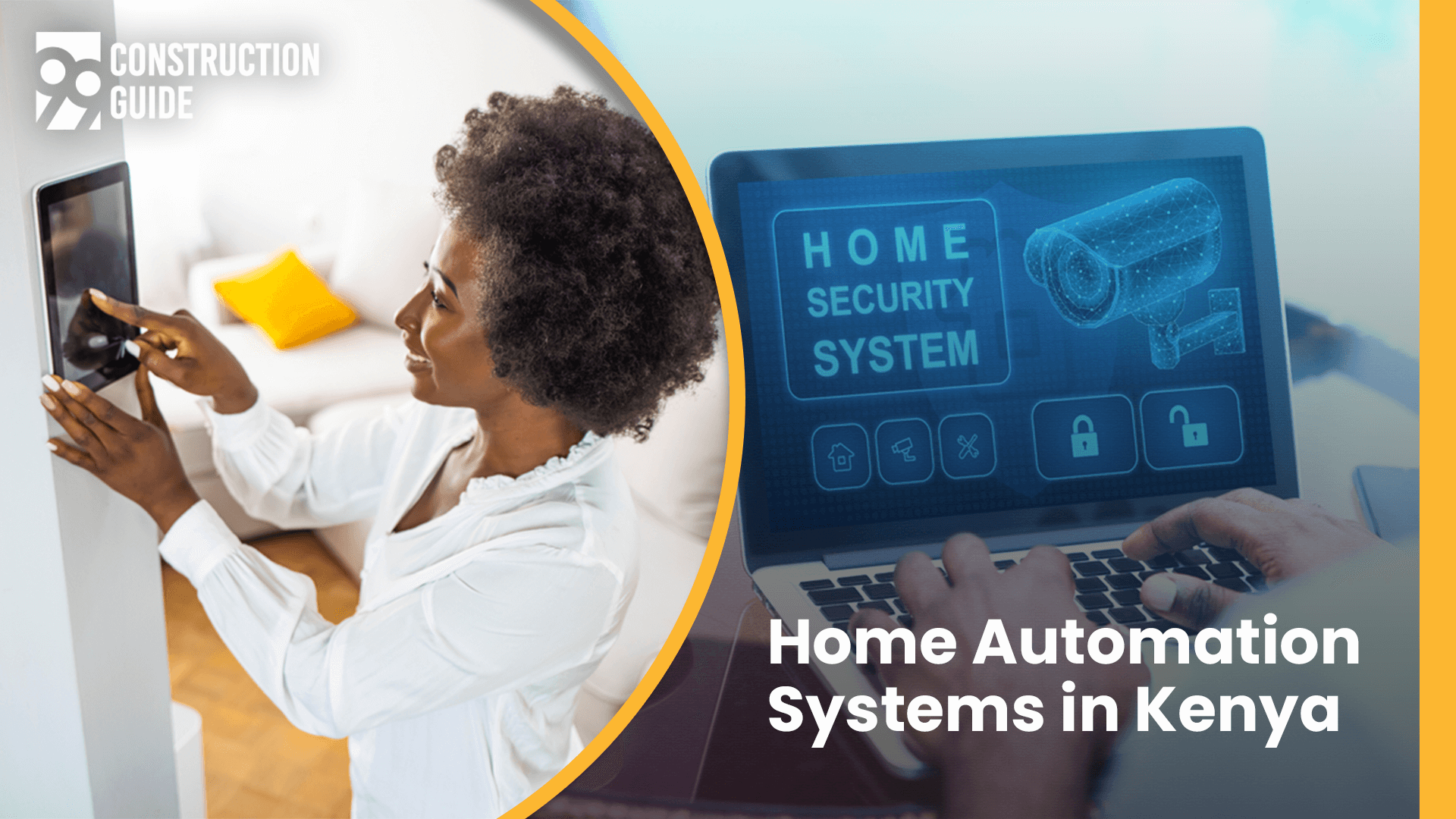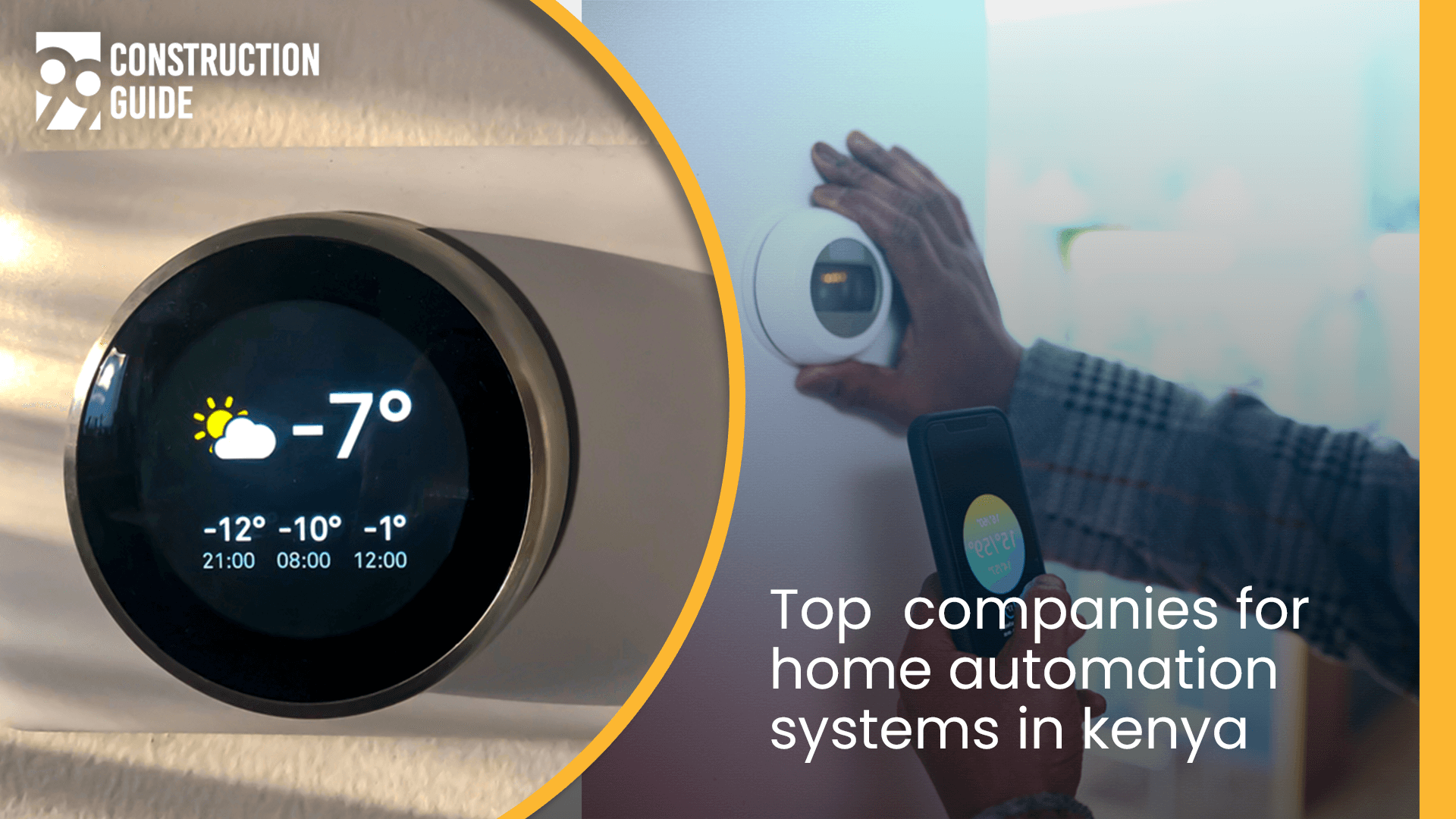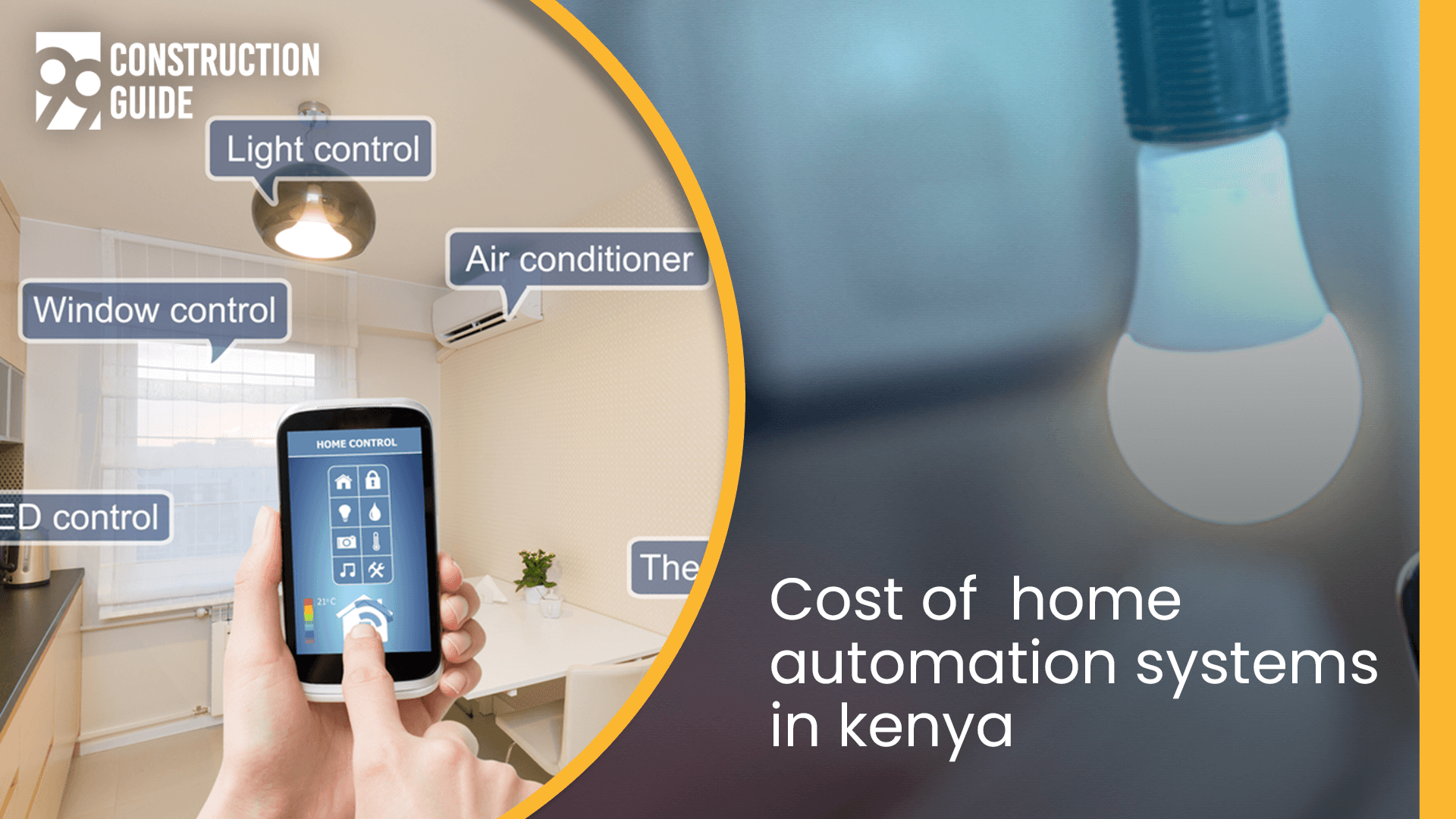Home automation refers to the use of technology to automate and control various aspects of a home, typically through a centralized system or network. It involves integrating smart devices and systems to provide enhanced convenience, comfort, energy efficiency, and security within the home environment.
Home automation allows homeowners to remotely monitor and control different functions of their home. It enables the seamless interaction and coordination of these devices and systems, often through a central hub or a mobile app.
Home automation is gaining popularity in Kenya as it offers convenience, energy efficiency, and enhanced security for homes. Below are some components that make up a home automation system in Kenya:

Components of Home automation systems in kenya
- Smart Lighting: Smart lighting systems allow you to control and automate your lights remotely. You can adjust brightness, set schedules, and even create ambiance using your smartphone or voice commands. Some systems also offer energy-saving features by automatically turning off lights when no one is present in the room.
- Home Security Systems: Home automation can integrate with security systems to provide comprehensive protection. You can remotely monitor your security cameras, receive real-time alerts for suspicious activities, and even lock or unlock doors using your smartphone. Some systems also allow integration with motion sensors and alarms.
- Smart Thermostats: With a smart thermostat, you can control your home’s temperature remotely. These devices learn your preferences over time and adjust heating or cooling accordingly, helping you save energy and money. You can set schedules, monitor energy usage, and even receive temperature alerts.
- Voice Assistants: Popular voice assistants like Amazon Alexa or Google Assistant are compatible with various smart home devices. You can control lights, thermostats, security systems, and other connected devices using voice commands. Voice assistants can also provide weather updates, answer questions, and play music or podcasts.
- Smart Appliances: Many appliances, such as refrigerators, washing machines, and ovens, can be connected to a smart home network. These appliances offer features like remote monitoring, scheduling, and even sending alerts when a task is completed or maintenance is required.

Top companies for home automation systems in Kenya
- Talinda East Africa: they install smart home systems for modern homes in Kenya.
- Tech Access solution: They offer reliable and wireless smart home automation systems that adapt to the needs of the entire family.
- Smart Home Kenya: Smart Home is a home automation company that offers a single-system approach to managing and simplifying a wide range of devices and systems. Their services include lighting control, energy management, security systems, and home theater installations.

The Cost of home automation systems in kenya
The cost of home automation in Kenya can vary based on factors such as the scope of the automation project, the specific devices and systems chosen, and whether professional installation is required. The costs can be categorized into:
- Devices and Equipment: The cost of individual home automation devices can vary widely. For example, smart thermostats can range from around Ksh 10,000 to Ksh 30,000 or more, depending on the brand and features. Smart lighting systems may start around Ksh 5,000 per bulb or more, depending on the type and brand. Security cameras can range from Ksh 5,000 to Ksh 50,000 or higher, depending on the quality and features.
- Hub or Controller: Some home automation systems require a central hub or controller to connect and control the devices. The cost of a hub can vary depending on the brand and capabilities. Basic hubs may start around Ksh 5,000, while more advanced hubs with additional features may cost Ksh 15,000 or more.
- Installation: The cost of installation can depend on the complexity of the automation system and whether you choose to hire professional installers or install the devices yourself. Professional installation fees can vary based on the size of the project, ranging from a few thousand Kenyan shillings to tens of thousands of shillings or more.
- Integration and Customization: If you require customization and integration of multiple devices and systems, additional costs may be involved. This can include the cost of programming and configuring the devices to work together seamlessly. The complexity of the integration and customization can affect the overall cost.
- Subscription Fees: Some home automation systems may have ongoing subscription fees for accessing certain features or services. For example, security systems may require monthly or annual monitoring fees for professional monitoring services.
Wrap up
When installing home automation in your home, consider factors such as compatibility, reliability of internet connectivity, and security protocols to protect your network and data. It’s also important to consider your budget when planning for home automation in Kenya. It can be helpful to consult with home automation providers to get accurate cost estimates based on your specific needs and desired level of automation. They can provide guidance on suitable devices and systems within your budget range, ensure the home automation providers you select can meet your requirements effectively.

